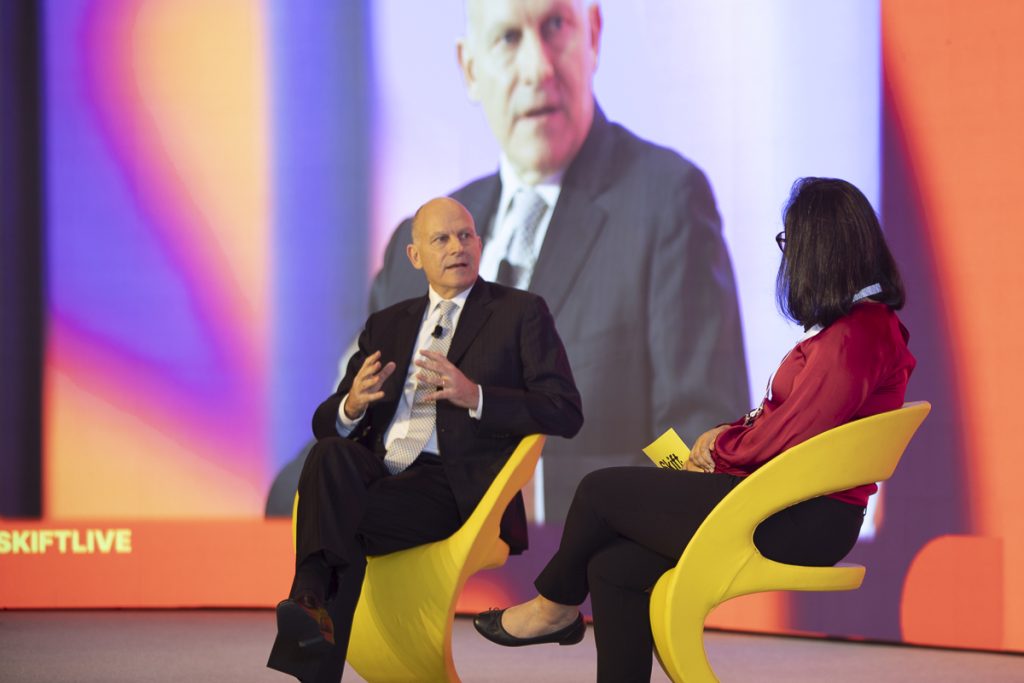Air India is heavily investing in upgrading its fleet and purchasing new aircraft, with CEO Campbell Wilson stating that their future investment plans depend on the government’s policy on bilateral agreements and seat capacity being granted. The airline has ordered 470 new aircraft from Boeing and Airbus, upgrading its fleet by retrofitting over 100 planes, including 40 wide-body aircraft. Additionally, they have ordered 25,000 seats as part of their fleet revamp, investing $400 million in this upgrade, with Wilson mentioning that Indian carriers have ordered over 1,000 aircraft in total, amounting to well over $100 billion of investment.
However, concerns arise as granting more bilateral rights to Middle East carriers could impact Indian airlines’ ability to fill seats on these new aircraft, leading to a lower return on investment. Wilson expressed hesitation in taking wide-body aircraft if they are unable to fill them due to the increased competition from carriers in other countries receiving more flying rights to and from India. This could potentially divert traffic away from India to other parts of the world, feeding the economies of those countries instead of India’s.
Middle East carriers such as Emirates and Qatar Airways are seeking more rights to operate increased flights to and from India, along with other countries like Singapore, Indonesia, Malaysia, and Turkey. Emirates President Tim Clark highlighted India’s restrictions on access to protect its national carriers like Air India and the Tata group amid their merger with Vistara. However, this protectionism could limit the choices for air passengers on international routes, compromising the strength of India’s economy. Clark urged India to sign an open skies accord with the United Arab Emirates to allow greater access to each other’s markets.
Other Indian carriers like SpiceJet and IndiGo agree that the focus should be on developing hubs within India to benefit all domestic carriers. IndiGo’s CEO Pieter Elbers stated that establishing an open skies agreement, similar to the U.S. and Europe, would take time and depend on the evolution of India’s markets and regulatory framework. Elbers emphasized the importance of creating a regulatory framework that serves the needs of customers and airlines, stating that agreements should offer opportunities for both sides to make sense. If not, a more tailored approach may be necessary to ensure mutual benefit.
In conclusion, the competition for increased bilateral rights to operate flights to and from India is heating up, posing challenges for Indian carriers like Air India in filling seats on new aircraft and ensuring a return on investment. The protection of national carriers, while important, could potentially limit the choices for air passengers and impact the strength of India’s economy. The call for an open skies agreement with the United Arab Emirates highlights the need for greater access to each other’s markets to promote growth and competition within the aviation industry. As the situation evolves, Indian carriers will need to navigate these challenges and opportunities to remain competitive in the global aviation market.


